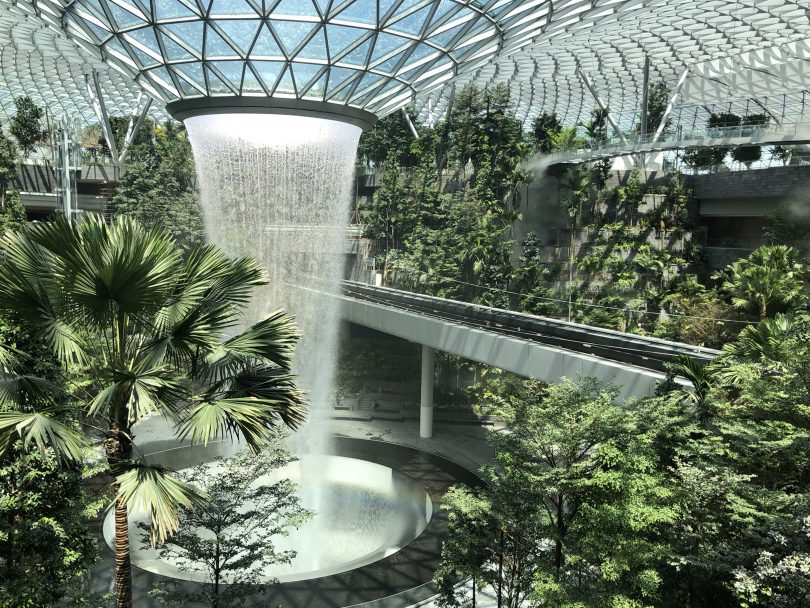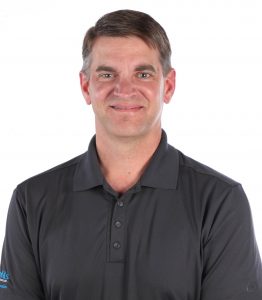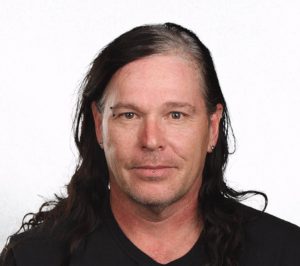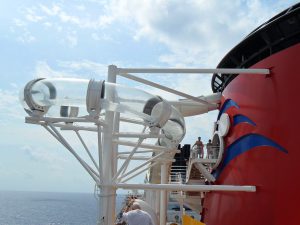By Sharon Sullivan –
Imagine watching active sea life through a crystal clear acrylic window while dining in the world’s largest underwater restaurant. A Grand Junction company helped make that possible for a Norwegian establishment that opened in March 2019.
“Building the Impossible” is the motto at Reynolds Polymer Technology where engineers take ideas from clients worldwide and turn them into reality. Aquariums, high-end swimming pools and unique architectural features are among the many applications for the highly engineered acrylic panels crafted by Reynolds.
A Reynolds Polymer team traveled to Norway to install the 36-foot panoramic acrylic window inside the restaurant’s concrete body, half-submerged 17 feet below the sea’s surface. The 13-foot tall acrylic piece was designed to withstand immense water pressure and harsh sea conditions. “It’s quite impressive, with a big window looking out to the North Atlantic Sea,” says Paul Gardner, Reynolds vice president of engineering.
Additionally, Reynolds Polymer helped create the world’s largest indoor waterfall, which was completed last year at the Jewel Changi Airport in Singapore. Sunlight illuminates the waterfall during the day, and after dark a light and sound show is projected on the sheet of falling water.
For that project, the company’s bonding manager, 52-year-old Victor Neil, spent a year and a half in Singapore where he led a crew from the Reynolds Thailand facility. “Anything too big to ship out of the shop we send in multiple pieces,” Neil explains.
“I’m in charge of adhering panels together seamlessly. I go onsite to put pieces together.”
PROJECTS WORLDWIDE
Neil had never been on a plane before coming to work at Reynolds 21 years ago. Since then he traveled to places such as Copenhagen, Denmark; Berlin, Germany; Paris, France; and Moscow, Russia, where he stays for several months working on Reynolds Polymer installation projects. In 2013, in Denmark, Neil helped install the Blue Planet Aquarium where visitors can view the hammerhead shark as it swims. The following year, Neil traveled to Russia to help build a four-story, 75-foot tall and 20-foot in diameter aquarium that holds 98,000 gallons of salt water and is home to 2,500 fish specimens and a spiraling Red Sea reef.
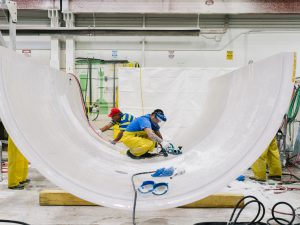
Reynolds Polymer employees prepare an installation.
“There’s only a handful of people in the world that can do what (Neil) does,” says Reynolds Polymer supervisor Luis Villalpando. The company employs approximately 100 people at its Grand Junction headquarters, and another 100 workers at its facility in Thailand. Reynolds has crafted and installed acrylic panels for projects in Hong Kong, Germany, Canada, South Korea, the Netherlands, Morocco, China, the United Arab Emirates, Romania, Greece and Mexico.
Reynolds is currently manufacturing panels for the London Sky Pool — an amazing pool project to be constructed between two high-rise buildings. Swimmers will be able to gaze through the pool’s clear acrylic bottom toward the street 10 stories below. Gardner expects a crew to be onsite installing the project later in 2020.
“We’re the only domestic manufacturer of thick acrylic plastic,” says Gardner, 49, who has worked for the company for 13 years. “If you want a 20-inch block of acrylic, it will be from us. Our competitors will laminate — glue thinner pieces together — whereas we pour one solid piece.” The pieces range from 2 to 36 inches, which creates a stronger product.
“The thing I like about working here,” says Neil, “is it’s always a challenge because we’re a custom shop. What we do is really is an art form.”
If you’ve been to an Apple store, you may have noticed the large white Apple logo on the front of the building. It’s made from acrylic by Reynolds Polymer.
“We make our own material from raw ingredients,” Gardner says. The chemicals — MMA (methyl methacrylate) and PMMA (polymethyl methacrylate) — are brought in from Tennessee and Japan. “We take these two components and put them together with our special ‘Coke’ (or proprietary) ingredients. We mix it all together and cook the material.”
PMMA is a synthetic resin produced from the polymerization of methyl methacrylate, an organic compound. The resin is obtained mainly from propylene, a compound refined from lighter fractions of crude oil. A transparent and rigid plastic, PMMA is often used as a substitute for glass in products such as shatterproof windows, aquariums, skylights, illuminated signs and aircraft canopies.
INSIDE THE GRAND JUNCTION SHOP
Workers blend the ingredients together in large metal mixing bowls inside a separate room adjacent to the main manufacturing area. From there, the concoction is brought into the main shop where it is poured into a casting tool, adjusted in accordance to the size of panel ordered. The casting tool holds the liquid mixture in place while the machine moves into a nearby autoclave (a big pressure cooker, 12 feet in diameter and 30 feet long). “It’s like baking a cake — it becomes a solid,” Gardner says.
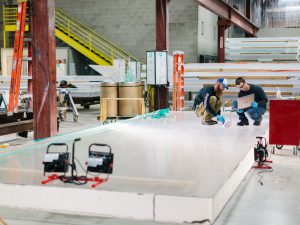
Reynolds Polymer employees work on a project at the Western Slope manufacturing facility.
After the mixture solidifies, the panel is lifted by an overhead crane and carried to another machine where it is cut to size specifications. The crane can carry up to 30,000 pounds at a time — delivering panels to various departments. A banner with the mantra “Accept Excellence: Anything Less is Unacceptable” hangs across the width of the crane crossing back and forth high above the shop floor.
Reynolds recently began making flight simulators — acrylic panels are shaped into a globe allowing pilots a clear 360-degree view. To form a rounded piece, first, a flat sheet is baked in the shop’s huge blue oven where, once it is heated, the acrylic becomes malleable. In January, a formed sphere lies on its side while a worker stands inside polishing the window.
In another area of the shop, a completed window for a swimming pool awaits inspection before being packaged up and loaded into a semi truck for delivery to California. “High-end swimming pools are very trendy right now,” Gardner says.
Two large acrylic slide tubes destined to become AquaDuck waterslides — high-speed roller coasters for the Disney Dream and Fantasy cruise ships — are also close to completion on this particular January day.
DISNEY WORLD
One of Reynolds’ first big aquarium projects, after the company relocated from southern California to Grand Junction in 1992, was for Walt Disney World’s Living Seas Pavilion at Epcot Theme Park. (The aquarium has since been renamed “The Seas with Nemo and Friends Pavilion.”) “Disney was very important for getting our start,” Gardner says. A framed thank-you letter from Walt Disney Company CEO Michael Eisner hangs in the lobby of the Grand Junction headquarters. “Almost every SeaWorld you go to will have Reynolds Polymer’s work,” Gardner says. You’ll also find Reynolds’ acrylic work at many Bass Pro Shops and at Cabela’s stores that have aquarium features.
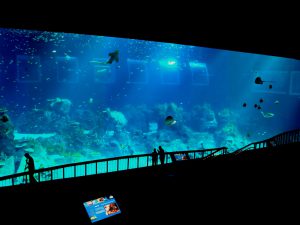
Aquariums are among the many applications for the highly engineered acrylic panels crafted by Reynolds.
In addition to its international portfolio, Reynolds has completed both commercial and personal projects throughout the United States, including Colorado. You’ll find the company’s work in Texas, Nevada, Washington, New Jersey, Ohio, Michigan, Indiana, Utah, Kentucky, New York, Pennsylvania, Oklahoma, Arizona, Florida and California.
In 2013, the city of Grand Junction commissioned Reynolds to create a memorial, titled “Remember,” honoring the victims of 9/11. Reynolds crafted two transparent 11-inch thick blocks of highly engineered acrylic, which included details of the Twin Towers. Lighting for the memorial — installed at the city police department — was designed by local firefighters. In between the two columns, notably, is a piece of steel from the Twin Towers in New York. “It’s quite impressive,” Gardner says.
Elsewhere in Colorado, Reynolds contributed to Denver’s Downtown Aquarium and Scheels All Sports aquarium in Johnstown.
When the Mesa County Library was remodeled several years ago, beautiful and unique acrylic light fixtures made from a special Reynolds cast product were chosen. SpringHill Suites in downtown Grand Junction created a modern ambiance in its lobby and lounge area with several panels designed by Reynolds Polymer.
Although most of the time Reynolds is busy working on clients’ projects, the company does have a research and development department where it works on developing new products. For example, acrylic is quite flammable, thus, Reynolds is working on a fire-resistant material for indoor applications. “We hope that it will be in the market next year,” Gardner says.
RELOCATING TO GRAND JUNCTION
The company originated in 1979 in southern California where Roger Reynolds Jr. owned a business making submarine windows for the U.S. Navy. His son, Roger Reynolds III, joined the company and came up with a unique acrylic casting method. In 1987, when his father was ready to sell the company, Reynolds III decided to spin off his own business — Reynolds Polymer Technology — focusing on creating acrylic windows for aquariums and fancy swimming pools.
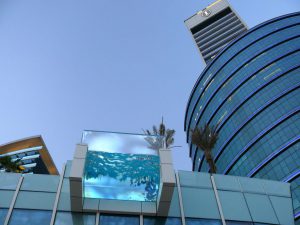
Many high end acrylic swimming pools are the works of a Colorado company.
Eventually, Reynolds Polymer Technology outgrew its California facility. Plus, Reynolds III’s wife owned horses and sought a more rural community, so the couple began looking for smaller cities in which to relocate. In 1992, after checking out several western towns, Reynolds Polymer settled on Grand Junction. In 2000, the company expanded with Reynolds Asia in Thailand, which was added to be closer to the Asia Pacific market.
Reynolds III sold the company in 2013 to C3 Capital in Kansas City, Missouri. The global enterprise, which grosses $50 million annually, has completed roughly 2,000 projects in 57 countries.
Reynolds Polymer is one of only 35 Colorado businesses to be awarded SHARP certification, OSHA’s Safety and Health Achievement Recognition Program. Additionally, Colorado’s Environmental Leadership Program designated Reynolds as a “Gold Leader” for a three-year term for exceeding state and federal regulations. In 2019, the company went beyond compliance with the Colorado Department of Public Health and the U.S. Environment and Environmental Protection Agency regulations by accomplishing goals within three areas: responsible energy and greenhouse gas reduction, waste minimization and diversion, and corporate social responsibility.
SCIENTIFIC INVOLVEMENT
Reynolds is also involved with scientific projects. The company manufactured a 40 foot diameter acrylic sphere with 4-inch thick walls for an experiment in Canada at the Sudbury Neutrino Observatory, located 6,800 feet underground in an Ontario mine. Its purpose was to detect solar neutrinos or determine reasons for why the sun shines. The project won a Nobel Prize for its science. “They couldn’t have done it without that vessel,” Gardner says. Reynolds’ Neil worked at the bottom of that mine.
Over the years, Reynolds Polymer has helped with other scientific experiments involving dark matter (subatomic particles) studies. “Scientists love our acrylic material because of its visibility,” Gardner says. “It lets through light. Scientists also like Reynolds’ products because we’re good at fabricating and making complicated parts.”
Since 2016, the company has collaborated with an international team of approximately 250 scientists, engineers and technicians from 38 organizations. The company provided tanks for an experiment taking place about a mile under the Black Hills of South Dakota. The project is designed to detect dark matter believed to make up the bulk of the universe. The custom-designed tanks were placed one mile below the earth’s surface at the Sanford Underground Research Facility.
For more information about Reynolds Polymer, or if you enjoy working hard and want to see the world, visit the company’s website at reynoldspolymer.com for openings and opportunities.
“The culture here is awesome,” Villalpando says.
Sharon Sullivan is a freelance writer from Grand Junction who loves telling the stories of the people on Colorado’s Western Slope.

